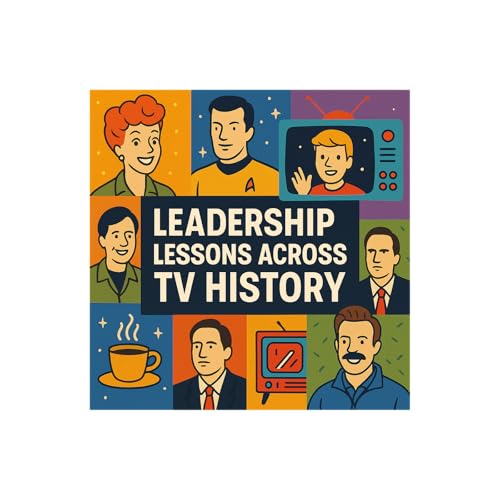What if the most outstanding leadership lessons were hiding inside your favorite TV shows? From Lucy’s daring creativity to Ted Lasso’s world-changing kindness, this episode takes you on a leadership journey through the decades, showing how every era teaches us something powerful about becoming stronger, more human leaders.
Summary
In this high-energy episode, Adrienne Barker, MAS, brings leadership to life through the unforgettable characters and iconic moments from seven decades of television. Beginning in the 1950s with I Love Lucy and ending in the 2020s with Ted Lasso, Adrienne breaks down how comedy, optimism, teamwork, reinvention, and heart have shaped our understanding of leadership today. You will learn how each show conveys a leadership message that remains relevant and how emotional intelligence, kindness, purpose, and community drive modern leadership more than ever.
Six Key Takeaways
➡ Creativity and courage from the 1950s, Lucy teaches bold thinking and entrepreneurial instinct, while Ricky models structure and direction.
➡ Vision for the future from the 1960s Star Trek shows that collaboration, cultural awareness, and brave exploration shape authentic leadership.
➡ Grace under pressure from the 1970s MASH reveals how humor, compassion, and adaptability help teams stay grounded even in chaos.
➡ Community and belonging, as seen in the 1980s sitcom Cheers, prove that people thrive when they feel valued, supported, and welcomed.
➡ Relationship-based leadership from the 1990s and 2000s, Friends and The Office both demonstrate that trust, communication, emotional intelligence, and personal growth are at the heart of strong leadership.
➡ Purpose, kindness, and reinvention from the 2010s and 2020s Parks and Recreation and Ted Lasso show that positivity, strong boundaries, empathy, and belief in people create cultures where everyone can succeed.
Call to Action
To read the whole leadership series and explore each decade in depth visit AdrienneBarker.com.
Follow and subscribe for more leadership lessons that mix strategy, heart, humor, and the power of storytelling. Watch the video on YouTube: https://youtu.be/NgRq6XAOxQg?si=3HGh3qhwzbwt5QZt
 Sep 26 202514 mins
Sep 26 202514 mins 14 mins
14 mins 16 mins
16 mins 14 mins
14 mins 12 mins
12 mins 14 mins
14 mins Dec 7 20256 mins
Dec 7 20256 mins 10 mins
10 mins
